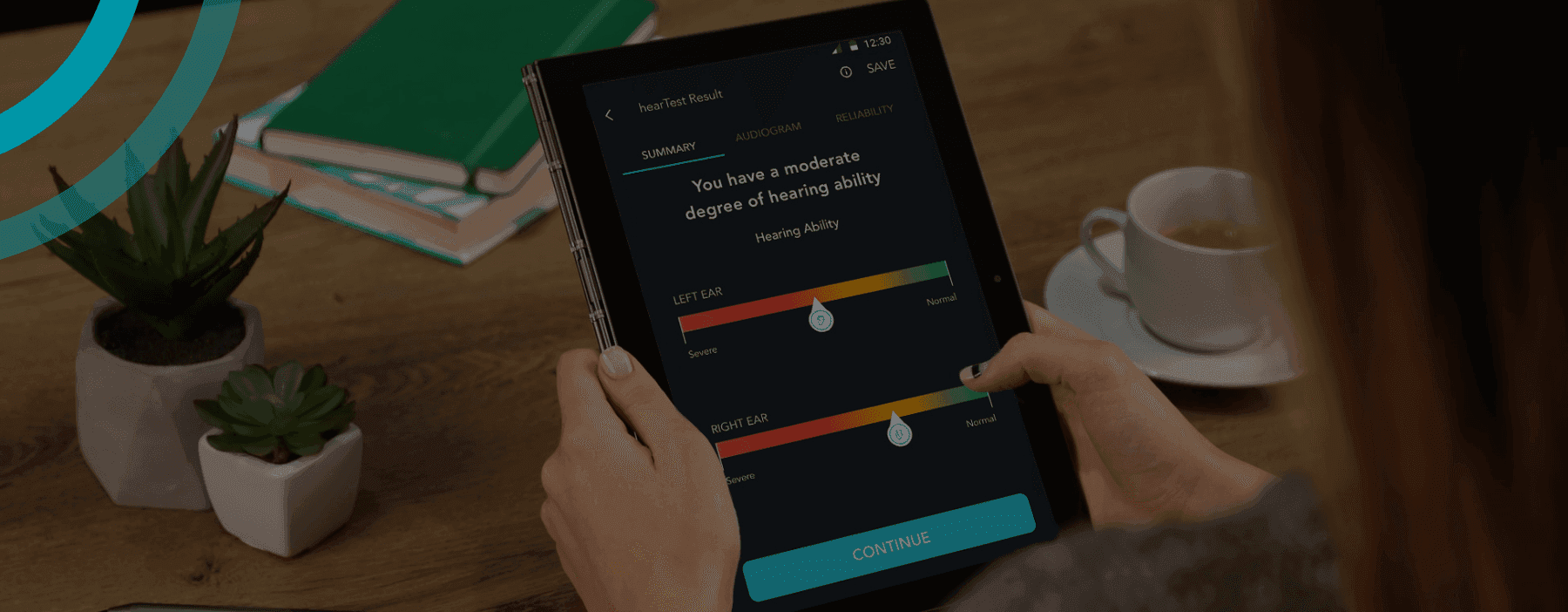
Advancing hearing screening for broader accessibility
Search for articles by category
Globally, unaddressed hearing loss ranks as the third largest contributor to years lived with disability. Yet, many remain undiagnosed due to barriers like geography, cost, and limited access to audiologists. Fortunately, mobile hearing screening technology, combined with telehealth and cloud-based integration, is removing these barriers and expanding access to care.
How has hearing assessments evolved in recent years?
Traditional hearing assessments were conducted in hospitals, clinics or private practices, requiring bulky equipment, soundproof booths, and trained specialists onsite. For people in rural or underserved areas, this setup made access to hearing care largely inaccessible.
Advancements in digital audiometry and cloud-based applications have paved the way for hearing health services to move beyond those settings. Audiometric testing can now be conducted onsite, ranging from settings like neonatal wards to schools, community centers, clinical trial sites, and workplaces.
Which technologies are available to conduct hearing screening and testing?
Medical device manufacturers have introduced several innovative ways to conduct assessments, including screening, over the last decade, through a range of technologies that include:
1. Portable audiometers
Modern hearing test devices are now compact, designed more intuitively, and capable of delivering accurate test results in minutes*. Devices like our hearTest digital audiometer allow for pure tone audiometric testing without the need for a sound booth.
2. Otoacoustic emissions devices
OAE testing is an objective test which can provide valuable information on hearing assessments, enabling early detection of possible hearing loss.
hearX's latest product, the hearOAE offers Bluetooth compatibility, compact design, and both TE- and DPOAE screening and diagnostic capabilities. This makes it well-suited for newborn and school screenings, clinical and research studies, and onsite occupational testing.
3. Cloud-based Electronic Health Record (EHR) systems
- With platforms like hearX Cloud, healthcare professionals gain real-time access to patient test results, enabling timely, evidence-based decisions for follow-up care. As a cloud-based EHR portal, it enables hearing care practitioners to deliver telehealth services, review results remotely, provide virtual consultations, and manage care across multiple locations.
- In occupational hearing testing, employee baseline and follow-up results are stored in one central location. This simplifies compliance reporting and helps employers monitor the effectiveness of hearing conservation efforts.
- For clinical trials, data from multiple sites can be managed centrally and securely, to support trial workflow efficiency.
4. Integrated self-test applications
Advancements in self-testing are transforming how hearing assessments are delivered, making it easier for providers to offer effective, low- or no-touch care. Products like the hearX® Self Test Kit provide a range of hearing evaluations that can be conducted on a tablet. These assessments include pure tone audiometry, speech-in-noise testing, UCL/MCL measurements, and risk assessments for conductive and asymmetric hearing loss.
Accessibility in action: Measuring real-world impact
The advancements in hearing test equipment we discussed earlier aren’t just helping to improve efficiency. It’s also enhancing accessibility in different settings:
- In semi-rural communities, healthcare workers are able to screen large volumes of children onsite, using hearX’s portable screening technology.
- In occupational health and safety programs, hearing tests can help to ensure sufficient hearing conservation efforts and protection is put in place to ensure regulatory compliance and safeguard employee hearing.
- In clinical trials, sponsors can conduct Extended High Frequency (EHF) testing to detect high-frequency hearing loss and support the integrity of the study outcomes.
- In schools, nurses and hearing care practitioners can identify potential hearing difficulty and ensure timely intervention for children, to support learning and healthy development.
- On retail and clinic websites, online hearing screenings enable users to test their hearing anytime, helping with timely detection and intervention.
What happens if hearing loss remains undetected?
Undiagnosed hearing loss can have serious implications. It may:
- delay speech and language development in children,
- cause social isolation in older adults, and
- increase safety risks for employees in noisy work environments.
Expanding access goes beyond simplifying tests. It’s about ensuring early detection, enabling prevention, and promoting lifelong hearing wellness through regular screening, education, and safer listening practices.
Looking forward: Supporting equitable hearing care access
The future of hearing health is no longer limited to traditional clinics or costly equipment. With smart, portable hearing screening and assessment equipment, hearing care practitioners can deliver quality care wherever it’s needed, efficiently and affordably.
At hearX, we’re proud to support this shift. Our technology is designed to extend care to more people, in more places, helping to make fast-track access to equitable hearing care.
Not sure which one of our products could be a fit for your requirements?
Email us or call:
US: +1 (415) 825-3064 | RSA: +27 (0) 12 030-0268
One of our friendly, dedicated representatives will gladly assist you.
====
The Bluetooth® word mark and logos are registered trademarks owned by Bluetooth SIG, Inc. and any use of such marks is under license. Other trademarks and trade names are those of their respective owners.
The hearX mark is a registered trademark.
*Test duration may vary based on several factors, including a patient's medical history, the type of test conducted, the facilitator’s proficiency with the testing equipment, and the level of patient cooperation. Please note that this is not an exhaustive list. The benchmark test duration referenced is specific to hearX audiometric equipment. For any further inquiries, please contact us at support@hearxgroup.com.



